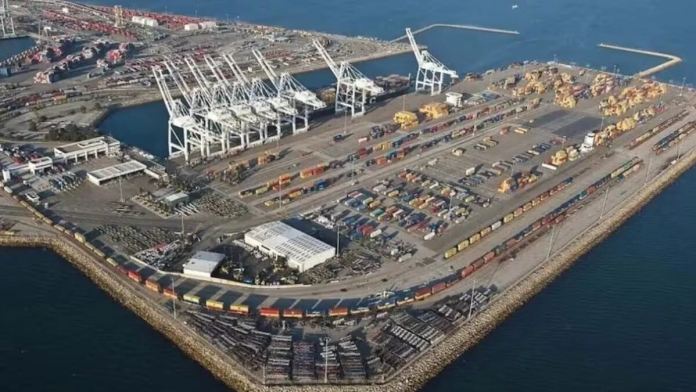The Chabahar Port in Iran, developed with India’s support, has long been seen as a vital link for regional trade and connectivity. It provides India direct access to Afghanistan and Central Asia, bypassing Pakistan, and serves as a hub for both commercial and humanitarian shipments. However, the recent decision by the United States to withdraw its sanctions exemption has placed this project under serious strain, raising doubts about the future of one of India’s most significant overseas investments.
India’s Key Trade Gateway at Risk
The United States, under President Donald Trump’s administration, has revoked a special sanctions exemption that previously allowed India to operate at the port without fear of penalties.
This exemption was important because the US has strict sanctions on Iran. Without it, Indian operators and companies working at the port could now be exposed to US restrictions. The move took effect on September 29, raising concerns over India’s investment and its long-term connectivity plans in the region.
India began managing part of Chabahar Port in 2018 through India Ports Global Limited (IPGL), a company backed by the Government of India’s Ministry of Ports, Shipping and Waterways. Since then, it has developed into a crucial hub for trade. The port lies on the Gulf of Oman and offers India a direct route to Afghanistan and Central Asia, bypassing Pakistan. This makes it not only a trade hub but also a strategic project for India.
EU and India explore trade and security pact under shadow of Russia sanctions
Why Chabahar Port Matters
Chabahar Port has become a symbol of India’s regional strategy. It has already handled more than 8 million tonnes of goods and processed tens of thousands of containers. India has spent over $120 million on infrastructure and development, including credit lines for expansion provided by the Export-Import Bank of India (Exim Bank).
One of the main reasons Chabahar is so important is that it supports the movement of humanitarian aid to Afghanistan. Supplies of food, medicines, and other essentials have been transported through the port to help Afghan people during difficult times.
Plans were already in motion to expand the port’s capacity from 100,000 to 500,000 containers. It was also expected to link with Iran Railways by 2026, which would have further boosted trade opportunities for India and its partners in Central Asia.
Beyond trade, Chabahar is also viewed as a counter to China’s growing influence in the region. China, under President Xi Jinping, has heavily invested in Pakistan’s Gwadar Port through the China-Pakistan Economic Corridor (CPEC), part of the larger Belt and Road Initiative (BRI). For India, developing Chabahar was a way to balance this influence and secure access to resource-rich Central Asian markets as well as Russia through the International North-South Transport Corridor (INSTC).
US Sanctions and India’s Dilemma
The setback came after the US Department of the Treasury, led by Secretary Janet Yellen, tightened its sanctions on Iran. The new measures target financial networks and businesses accused of supporting Iran’s Islamic Revolutionary Guard Corps (IRGC) and its affiliated groups. The removal of the sanctions waiver for Chabahar is part of this larger “maximum pressure” campaign under President Trump.
U.S. launches sweeping sanctions on Iranian crypto network moving $100 million in oil funds
For India, this creates a complex situation. On one side, India shares strong strategic and economic ties with the United States, with growing cooperation under Prime Minister Narendra Modi. On the other, it has built deep cooperation with Iran, especially around energy and infrastructure projects like Chabahar, supported by Iranian officials including President Ebrahim Raisi.
The new restrictions now put Indian investments at risk. Companies working at Chabahar may face difficulties due to fear of being penalized by the US. This could slow down the port’s growth and affect trade routes that India has been trying to strengthen for years.
Chabahar’s location near the Strait of Hormuz adds to its importance. The strait is one of the world’s busiest waterways for oil transport. Having a presence nearby has been seen as vital for India’s regional security and economic interests.
The US decision has not only raised questions about India’s future plans for the port but has also highlighted the challenges of balancing between major global powers. Chabahar remains a critical project, but the sanctions move has cast a shadow over its role in the region.


